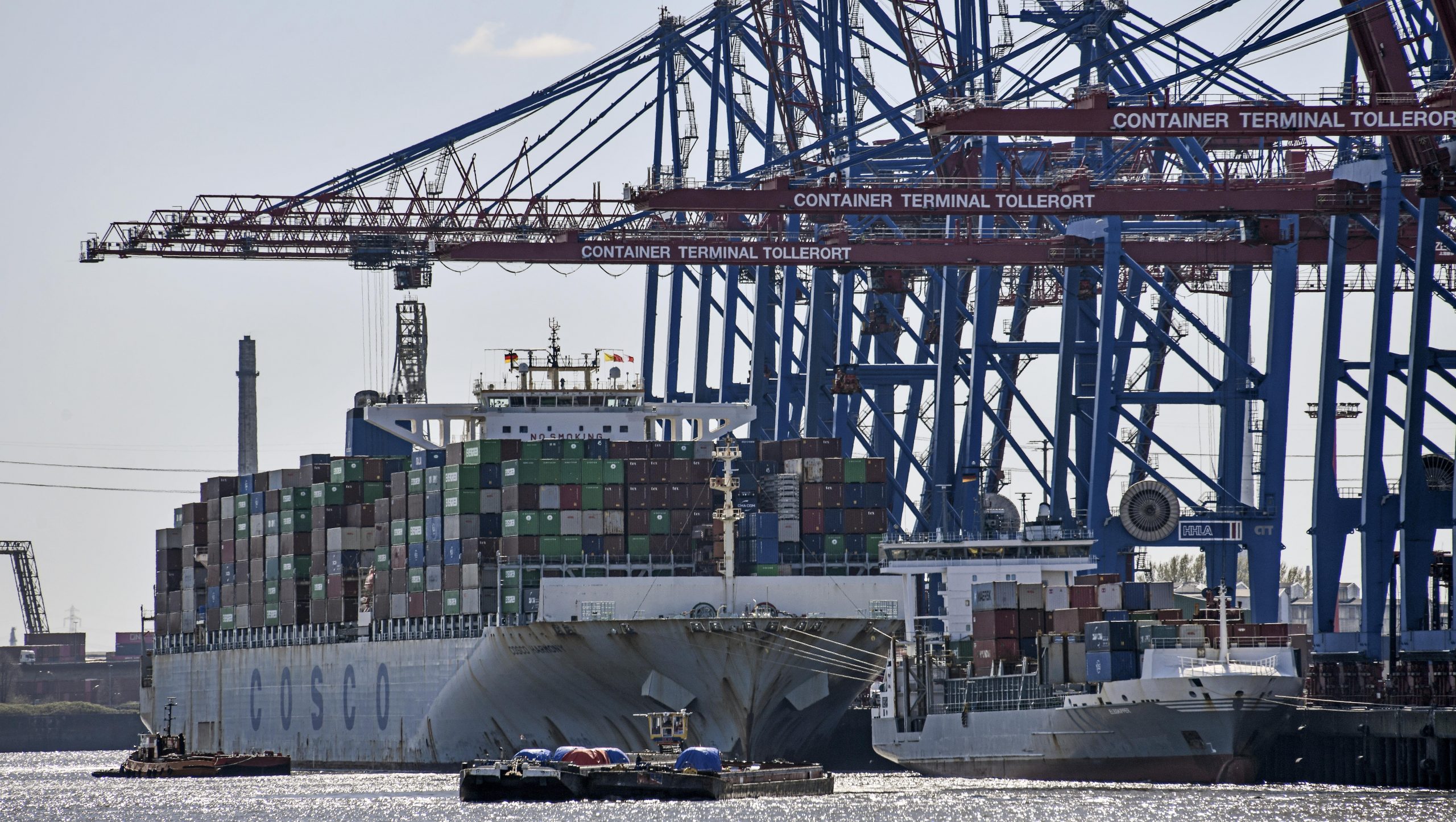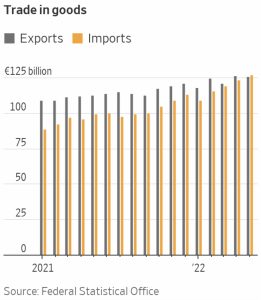
Containere lastes ombord i skip på havnen i Hamburg den 19. mars 2022. Foto: Martin Meissner / AP / NTB.
Tyskland hadde i mai et underskudd på handelsbalansen på én milliard euro, hovedsakelig på grunn av høyere energipriser. Det sterkt eksportavhengige Tyskland har ikke hatt negativ handelsbalanse siden landet ble gjenforent i 1991, skriver Wall Street Journal.
Adjusted for seasonal variations, Germany’s goods exports fell by 0.5% from April, while its imports rose by 2.7%. As a result, the industrial powerhouse had a trade deficit of 1 billion euros, equivalent to around $1 billion. It posted a surplus of €3.1 billion in April this year and €13.4 billion in May 2021.
Underskuddet kommer etter en lang trend i den retningen:
Foruten å betale mer for importen av energi fra Russland, har Tyskland også en forverret handelsbalanse med Kina. Tyskland er sårbart, og utsiktene er ikke gode, mener en Oxford-økonom:
“The macro data of late shows how structurally reliant Germany is on foreign demand as well as on foreign supply of raw materials, energy and intermediates,” said Oliver Rakau, an economist at Oxford economics. “On all fronts, the status-quo is being challenged.”
Til tross for sanksjonene på grunn av Ukraina-krigen har verdien av Tysklands import fra Russland økt, mens eksporten er gått ned:
The turnaround in Germany’s trade balance was partly driven by surging energy prices, as Russia prepared for and then carried out its Ukraine invasion. That led to a jump in the value of imports from Russia and other energy suppliers, while Germany’s exports to Russia fell sharply as a result of the sanctions imposed by Western governments. Over the five months through May, German imports from Russia were up 54.5% from the comparable period a year earlier, while its exports to the country were down 29.8%.
Verdensøkonomien bremser ned, og frykten for resesjon i Europa og USA er økende, skriver Wall Street Journal.
Kjøp «Et varslet energisjokk» her!









